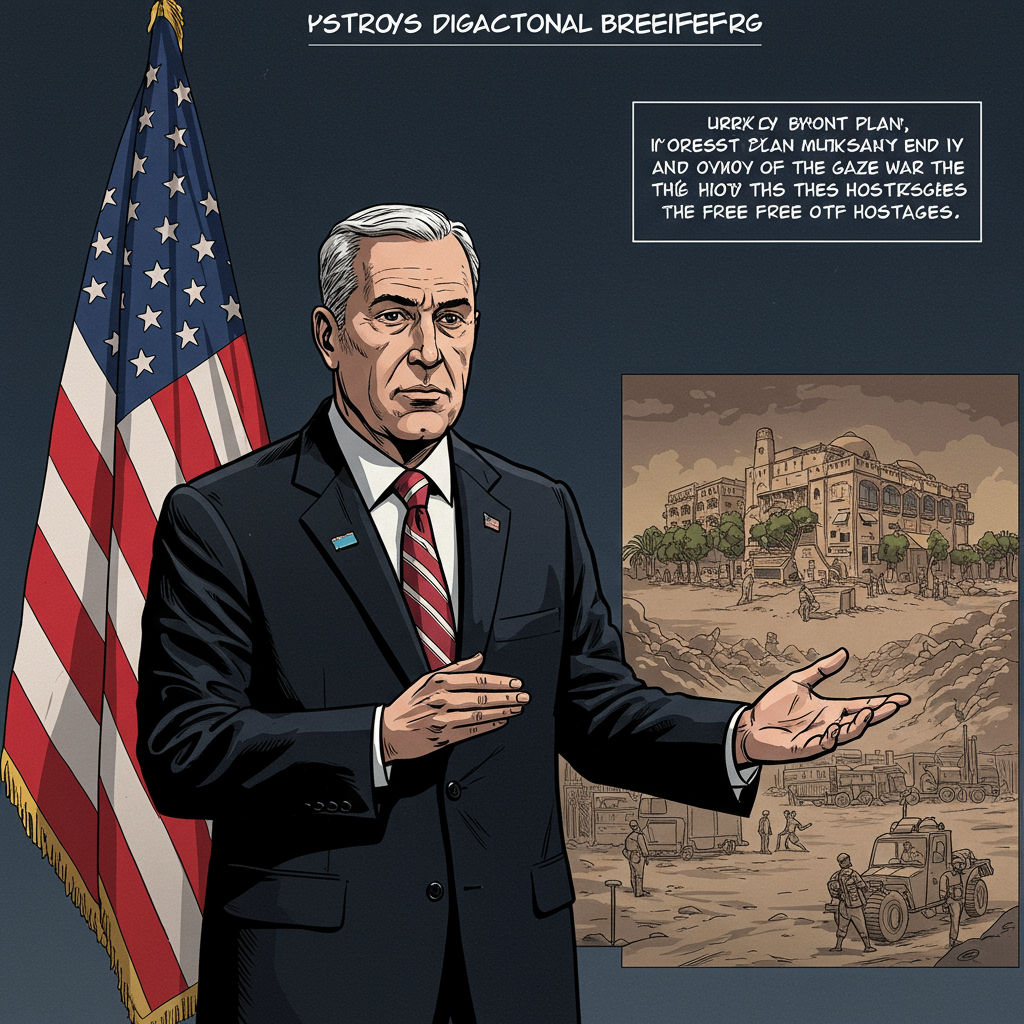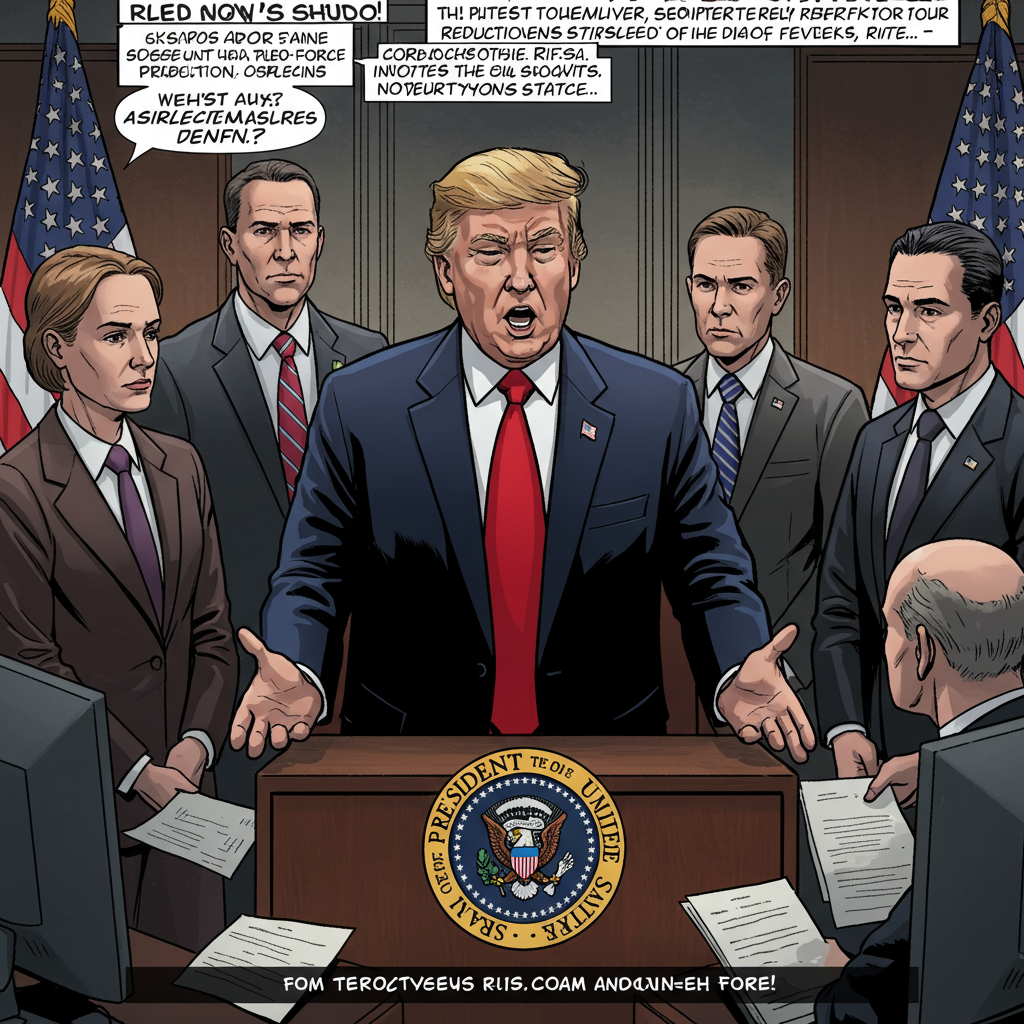Israel’s recent military strikes against Iran, dubbed “Operation Rising Lion,” appear to have been launched based on a significant premise: the expectation, though not certainty, that the United States would ultimately be drawn into the widening conflict. That core assumption is now facing its crucial test as President Donald Trump weighs the decision of full US military intervention.
According to Israeli officials, it was reportedly “unthinkable” for Prime Minister Benjamin Netanyahu to have ordered attacks on Iran without President Trump’s explicit backing. They assert that there was little ambiguity about the US leader’s preferences, suggesting approval for the operation was secured well in advance.
Timing Linked to a Trump Ultimatum
The timing of the Israeli offensive seems strategically linked to a deadline previously set by President Trump. In March, Trump sent a letter to Iran’s Supreme Leader, Ayatollah Ali Khamenei, giving Iran 60 days to accept stringent constraints on its nuclear program. The clock started ticking on April 12th, the date of the first US-Iran negotiations.
Netanyahu reportedly agreed to hold off military action during this 60-day window, giving diplomacy a chance. Operation Rising Lion, originally planned for April, was postponed. The attacks commenced last Thursday, precisely on day 61 of Trump’s calendar. That night saw approximately 200 Israeli planes launch their initial sorties.
As the deadline approached, the US did evacuate non-essential personnel from embassies in the Middle East. However, Trump publicly appeared to discourage an immediate Israeli attack, suggesting it could jeopardize planned negotiations. Israeli officials have reportedly speculated this was either a deliberate ruse to deceive Iran or, if genuine, a request that came too late, given the precise coordination and pre-positioned assets (like Mossad commandos and drones) already in place for the complex operation.
Trump’s Shifting Stance
Once Israel’s operation began, President Trump quickly shifted his public stance, swinging his support behind the military action. On his Truth Social platform, he referenced his expired ultimatum: “Two months ago I gave Iran a 60-day ultimatum to ‘make a deal.’ They should have done it! Today is day 61. I told them what to do, but they just couldn’t get there. Now they have, perhaps, a second chance!”
This “second chance” seemed to imply leveraging Israel’s military pressure to force Iran back to the negotiating table on Trump’s terms, potentially yielding a diplomatic win for the president. However, as Israel achieved battlefield successes, Trump’s rhetoric increasingly favored a military solution. He declared himself “not too much in the mood to negotiate” and even claimed ownership of the campaign, stating, “we now have complete and total control of the Iranian skies.”
The US Domestic Political Backdrop
Trump’s decision-making environment exists within a broader battle for influence over US foreign policy. Traditional foreign policy hawks within the Republican party strongly support Israel and favor aggressive action against Iran, particularly its nuclear capabilities. In contrast, an emerging “America First” faction, represented by figures like Tucker Carlson and Donald Trump Jr., is skeptical of foreign entanglements and views interventions in the Middle East warily, sometimes framing them as plots by the foreign policy establishment. While hawks pushed for the strike, “America First” voices warned against entanglement. Trump, while sharing some isolationist instincts, ultimately allowed the strike, navigating these competing pressures.
Why Israel Believes US Involvement is Crucial
The expectation within Israel that the US will eventually join the operation remains high. Israeli officials have reportedly stated that the “whole operation is premised on the fact that the US will join at some point,” and they are “waiting for the decision of the president.”
This reliance is partly tactical. Some of Iran’s most critical nuclear facilities, such as the deeply buried Fordow enrichment plant built into a mountain, are extremely difficult to target. Successfully penetrating such defenses may require specialized assets only available to the US Air Force, specifically powerful munitions like their 13,000kg (30,000lb) bunker busters.
The clamor for US involvement is also reflected in Israeli commentary. Veteran commentator Ben Caspit urged Trump to join, even suggesting he “Take all the credit.” Writing in Yedioth Ahronoth, Shimon Shiffer argued forcefully that “Without the involvement of the United States, the war with Iran will not reach a decisive conclusion… that justifies our assault… and the heavy price that Israeli citizens are paying.” Shiffer concluded with a dramatic plea: “Mr President, come save the world… Come save us from Iran. Come save us from ourselves.”
Alternative Perspectives on the Conflict’s Origins and Goals
Not all analyses agree on the nature of the conflict’s origins. One critical perspective argues the current situation constitutes a deliberately “manufactured crisis” centered on an “imaginary threat” – the claim that Iran is actively pursuing a nuclear weapon now. This view points to consistent US intelligence assessments since 2007 stating that Iran abandoned any active nuclear weapons program in 2003 and has not resumed it. Proponents of this view argue that Iran’s recent nuclear advancements are primarily leverage used against US pressure following the Trump administration’s withdrawal from the 2015 nuclear deal (JCPOA), and that the US demand for “zero enrichment” is an unnecessary obstacle designed by hawks to prevent a diplomatic solution.
Conversely, a hardline Israeli view presents a maximalist goal. While acknowledging the preemptive strike achieved surprise and inflicted damage, killing senior commanders, some argue that halting the nuclear program is insufficient. The ultimate objective, according to this perspective, must be the elimination of the Iranian regime itself. They contend that Iran’s proxy strategy has failed and the regime is exposed as vulnerable, suggesting US involvement could potentially deliver a “death blow” to the regime and bring broader regional stability.
Iran’s Strategic Vulnerabilities
Regardless of the conflict’s origins, some analysis points to significant failures in learning and adaptation within the Iranian military and political institutions. Iran appears to have underestimated Israel’s capabilities in areas like targeting leadership (following events like “Operation Grim Beeper,” which exposed vulnerabilities in communication security) and addressing air defense deficiencies. This suboptimal learning may have created vulnerabilities that Israel has exploited in Operation Rising Lion, contributing to initial battlefield successes.
The Stakes and the Test
As the war progresses, the assumption that the US will join remains central to Israel’s strategy. Netanyahu’s government may face significant challenges if Trump ultimately opts against full military intervention, potentially lacking a clear Plan B.
The situation represents a critical test, not only of Israel’s strategic planning but also of President Trump’s foreign policy direction and the internal forces shaping it. With high stakes for regional stability and potentially global dynamics, the world is watching to see if the US involvement assumption, central to Israel’s calculus, will hold true.


